Best CRM for Small Business in Australia — 7 Top Picks

Best CRM for Small Business in Australia — 7 Top Picks
Index

What Is CRM Software?
Are you in the dark about what CRM actually is?
Before we dive into the best CRM for small business in Australia, let’s cover off the basics.
In short, CRM refers to software or systems that businesses use to manage their interactions and relationships with existing and potential customers.
CRM software aims to enhance customer satisfaction, improve customer retention, and ultimately drive business growth.
CRMs typically collect and organise customer data across various touchpoints, such as sales, marketing, customer service, and support.
This data can include customer contact information, purchase history, preferences, interactions, and any other relevant details.
CRM systems can be implemented using dedicated software solutions – either on-premises or through cloud-based platforms – and have traditionally been adopted by businesses across a diverse assortment of industries.

Why Does a Business Need a CRM System?
The primary functions of a CRM system or software include:
Customer data management: Housing and organising customer information, providing businesses with an extensive overview of their customers’ profiles, preferences, and histories.
Sales and lead management: Helping to track leads, manage sales pipelines, and automate sales processes. A CRM allows businesses to oversee interactions, manage tasks, and streamline the sales cycle.
Marketing automation: Assisting in managing marketing campaigns, tracking customer responses, and analysing marketing effectiveness. A CRM helps businesses pinpoint specific customer segments and personalise marketing activity.
Customer service and support: Facilitating customer service interactions by providing a centralised platform for managing consumer enquiries, complaints, and support tickets. A CRM assists businesses with providing timely and efficient customer support.
Analytics and reporting: Generating reports and providing analytical insights based on customer data. These statistics enable businesses to tangibly evaluate their performance, identify relevant trends, and make data-driven decisions.
These are all important elements to consider when evaluating the best CRM for small business in Australia.
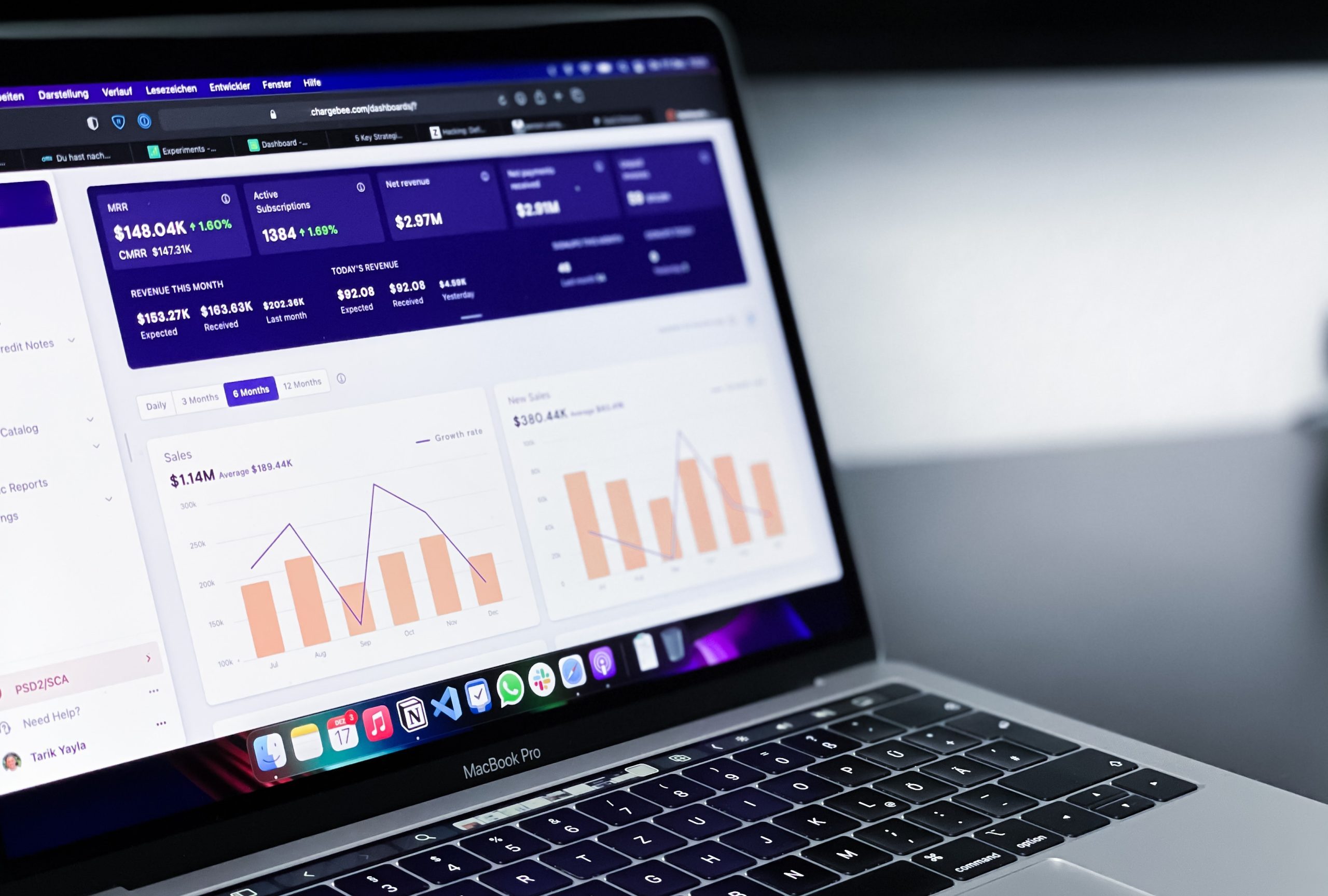
Best CRM for Small Business in Australia – You Decide
We’ve identified a super selection of CRM options for small businesses. They are:
1. HubSpot
HubSpot is ranked among the best CRM for small business in Australia, favoured for its extensive automation capabilities, robust feature set, and user-friendly interface. It’s highly rated for those with limited experience with CRM software – and we’re on board with it.
This cloud-based solution has a comprehensive range of tools, including contact and lead management, email marketing, pipeline tracking, and customer support integration.
With its intuitive interface and seamless integration with other HubSpot tools, small businesses can effectively track and nurture leads, automate sales processes, and gain valuable insights into customer behaviour.
HubSpot offers a free plan that is an excellent starting point, but it doesn’t allow access to some of the CRM’s key functionalities. Various paid versions with increased functionality are available beyond the free option.

2. Salesforce Essentials
Salesforce is a leading brand in the CRM world, accounting for a significant slice of the market share. The Salesforce Sales Professional CRM is its premium product – complete with a premium price tag – but is geared towards larger organisations.
However, Salesforce Essentials is designed specifically for small and medium businesses, offering a simplified yet powerful CRM solution at a relatively competitive price.
It delivers a complete set of CRM tools, including contact and lead management, email integration, opportunity tracking, and collaboration features.
With Salesforce Essentials, small businesses can streamline sales processes, improve customer service, and automate repetitive tasks.
In the negative column, the software can be complex to set up and has a 10-user cap – so the emphasis really is on small business. A selection of paid packages are available.
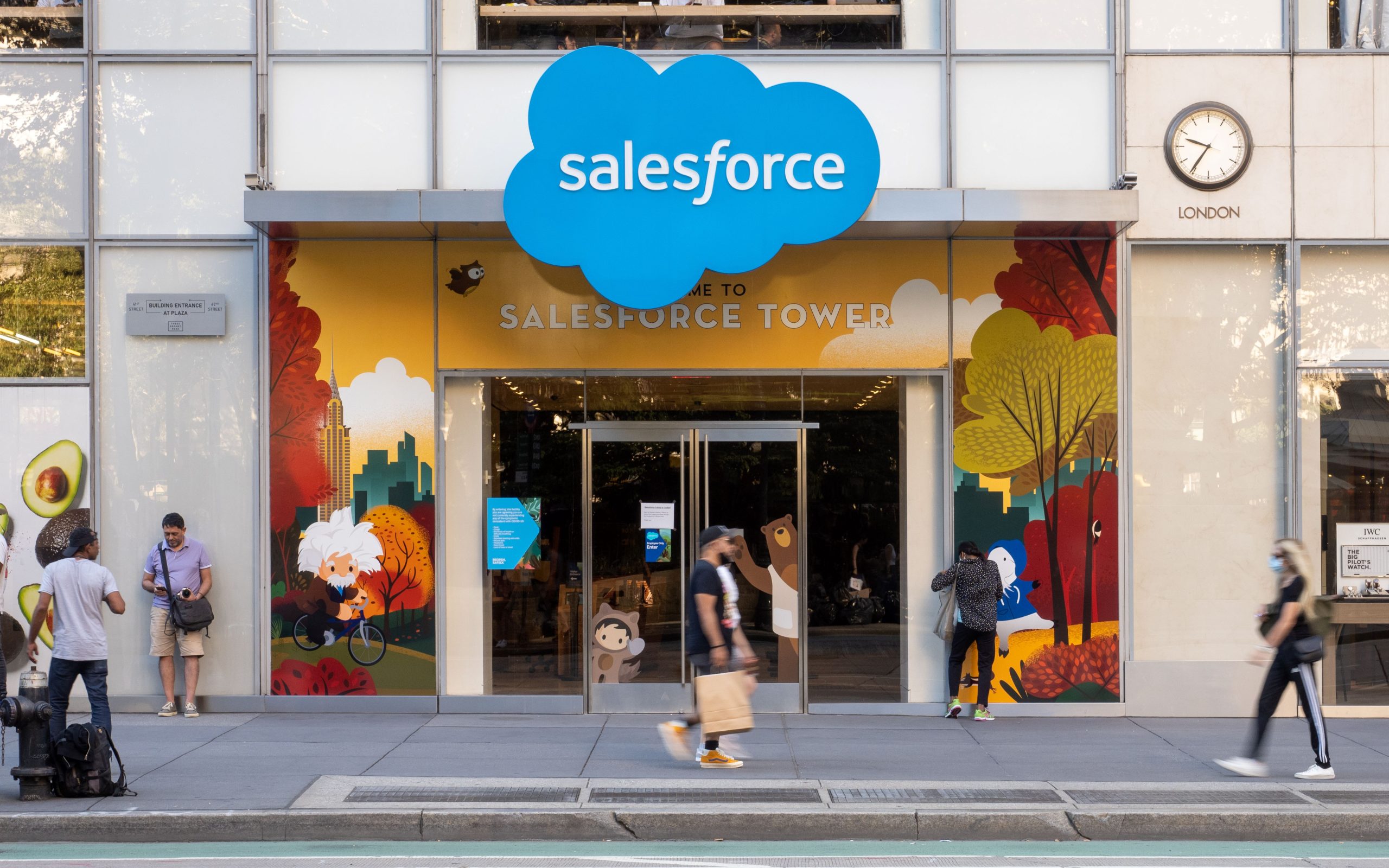
3. Zoho
This feature-rich and cost-effective solution deservedly earns a spot among the best CRM for small business in Australia.
It’s highly regarded for its social media management capabilities alongside wide-ranging functionality that includes lead and contact management, sales forecasting, and workflow automation.
Zoho’s customisable and extensive dashboards and reports are other strong suits, enabling businesses to easily analyse key performance metrics.
A free solution with limited capabilities is available alongside a variety of paid options.
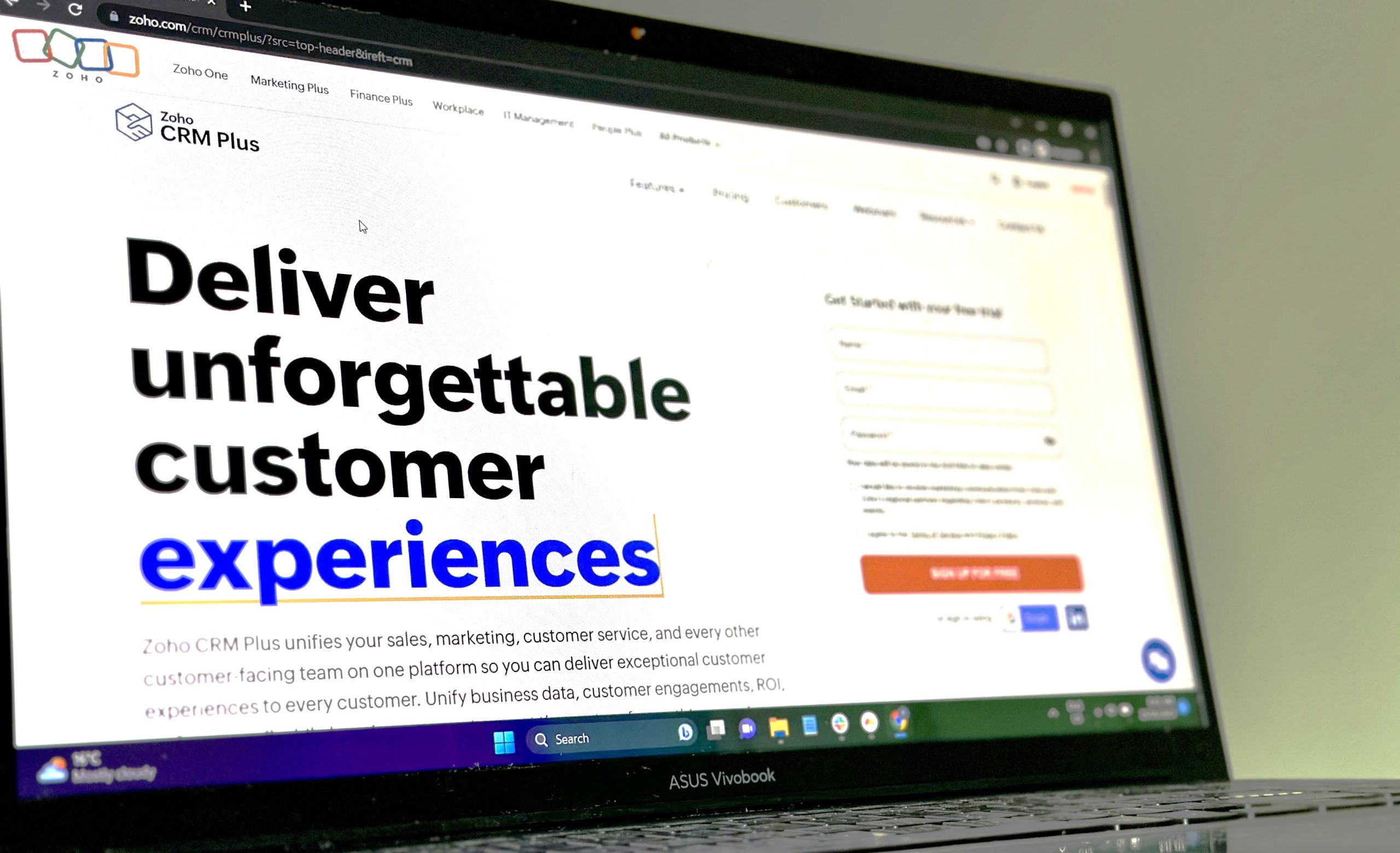
4. Pipedrive
For a no-fuss yet highly intuitive and user-friendly CRM platform, Pipedrive is the answer.
It’s popular with time-poor individuals who wish to quickly adopt and navigate their way around a CRM.
Pipedrive has a pronounced emphasis on offering support to sales teams, serving up useful features such as contact and deal management, email integration, sales reporting, and goal setting.
Its visual interface provides a clear overview of the sales pipeline, helping organisations identify bottlenecks, track progress, and optimise their transactional efforts.
Companies can choose from assorted paid plans.
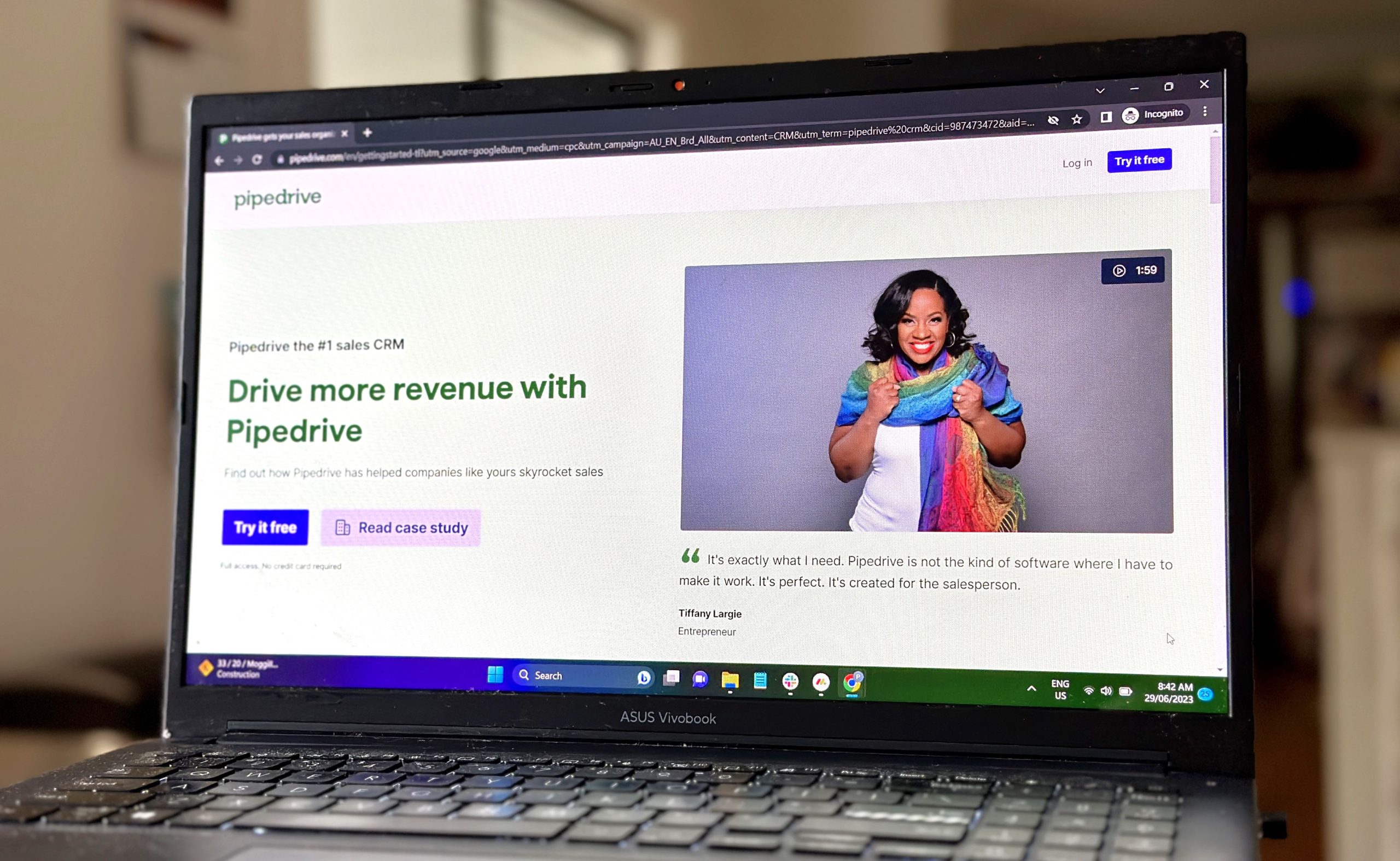
5. Nimble
A highlight of this simple and intuitive CRM is its contact management solutions. Nimble not only seamlessly stores and organises contacts but has functionality that helps businesses to uncover new leads.
Relationship insights, social media integration, sales and pipeline management, and email tracking and templates are other notable pluses of the software.
While Nimble earns its place among the best CRM for small business in Australia, there is a significant drawback – a single version.
This goes against the grain of most other platforms, which allow organisations to choose a plan best suited to their needs. The standard option is competitively priced at least.
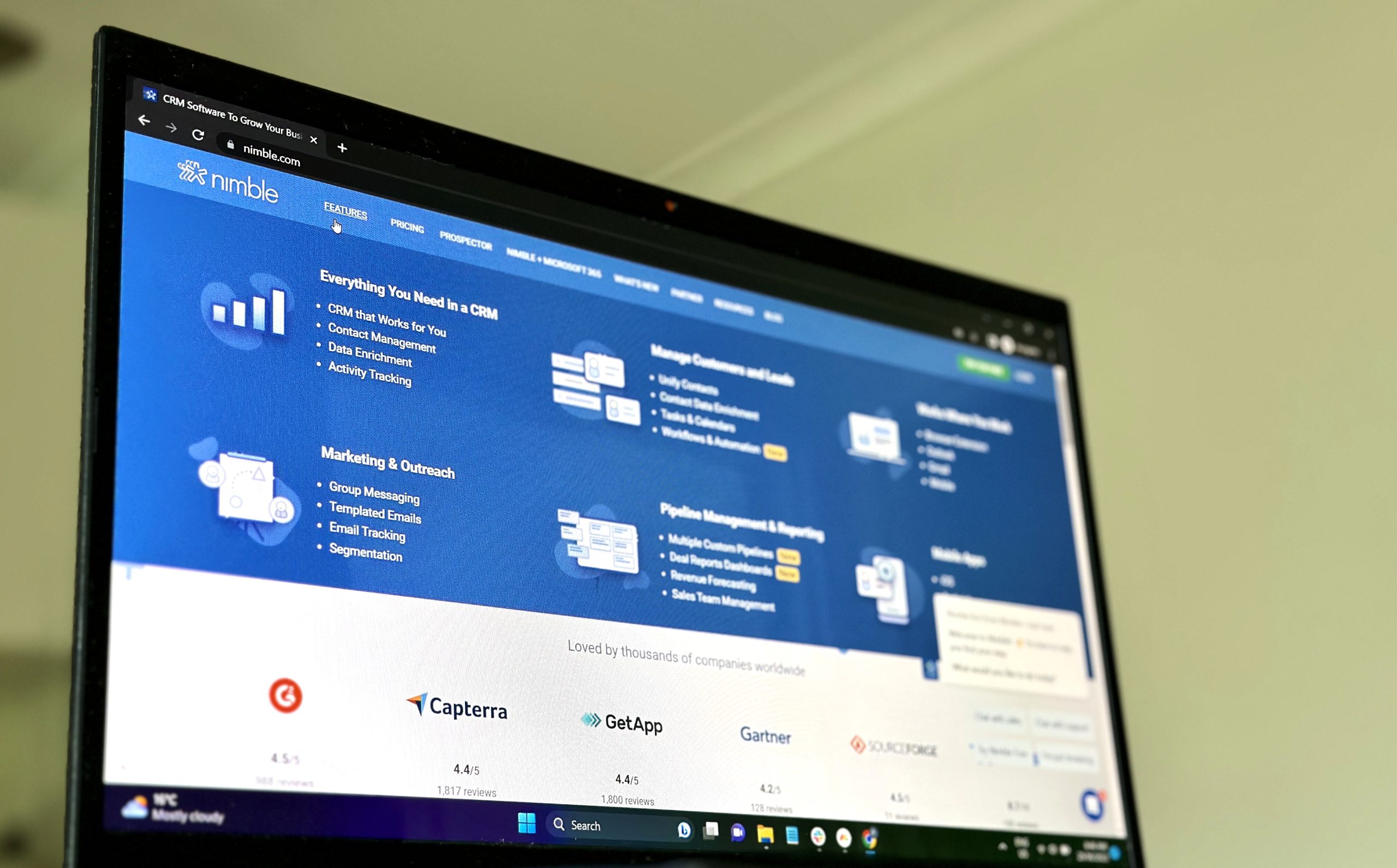
6. Insightly
Insightly is a great pick for small businesses, particularly those with a distinct need for reliable and robust project management capabilities.
This functionality is particularly advantageous for service-based organisations, allowing them to efficiently manage client projects and collaborate with team members.
Elsewhere, the platform offers the likes of contact and lead management, email integration, and workflow automation.
Also, Insightly provides integration options with popular business tools, ensuring seamless data synchronisation. There are various paid options to choose from.
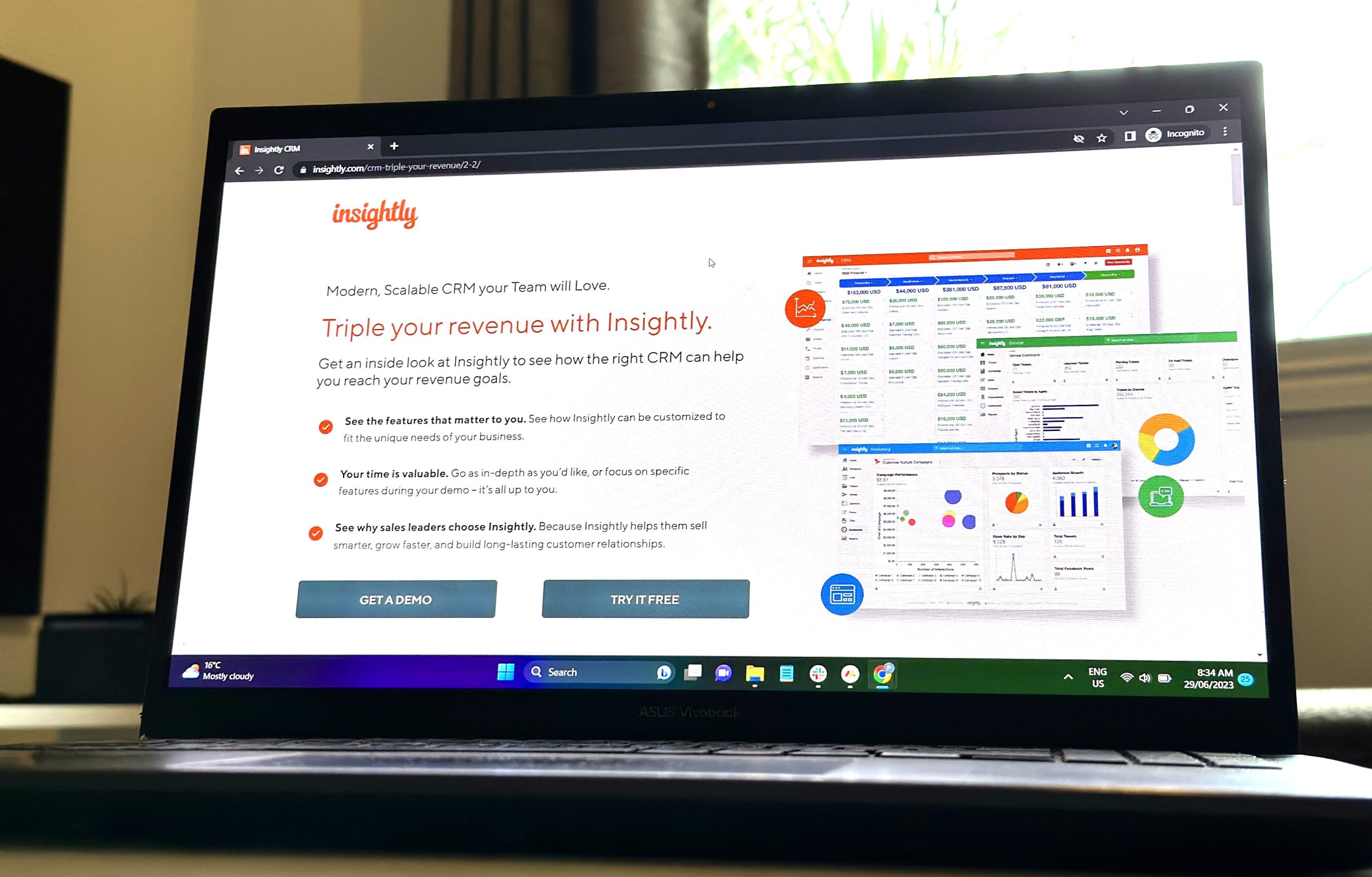
7. Agile
Agile is an all-encompassing and versatile solution that warrants mention in discussions about the best CRM for small business in Australia.
Its functionalities include contact and lead management, email marketing, telephony integration, social media tracking, and helpdesk automation.
A major strength is its marketing automation capabilities – notably the trigger-based email automation tool – that enables brands to create personalised campaigns, track customer engagement, and generate qualified leads.
On the downside, Agile receives criticism for its complexity.
As with most other CRM platforms mentioned, Agile has a free version offering limited functionality coupled with a selection of advanced paid plans.
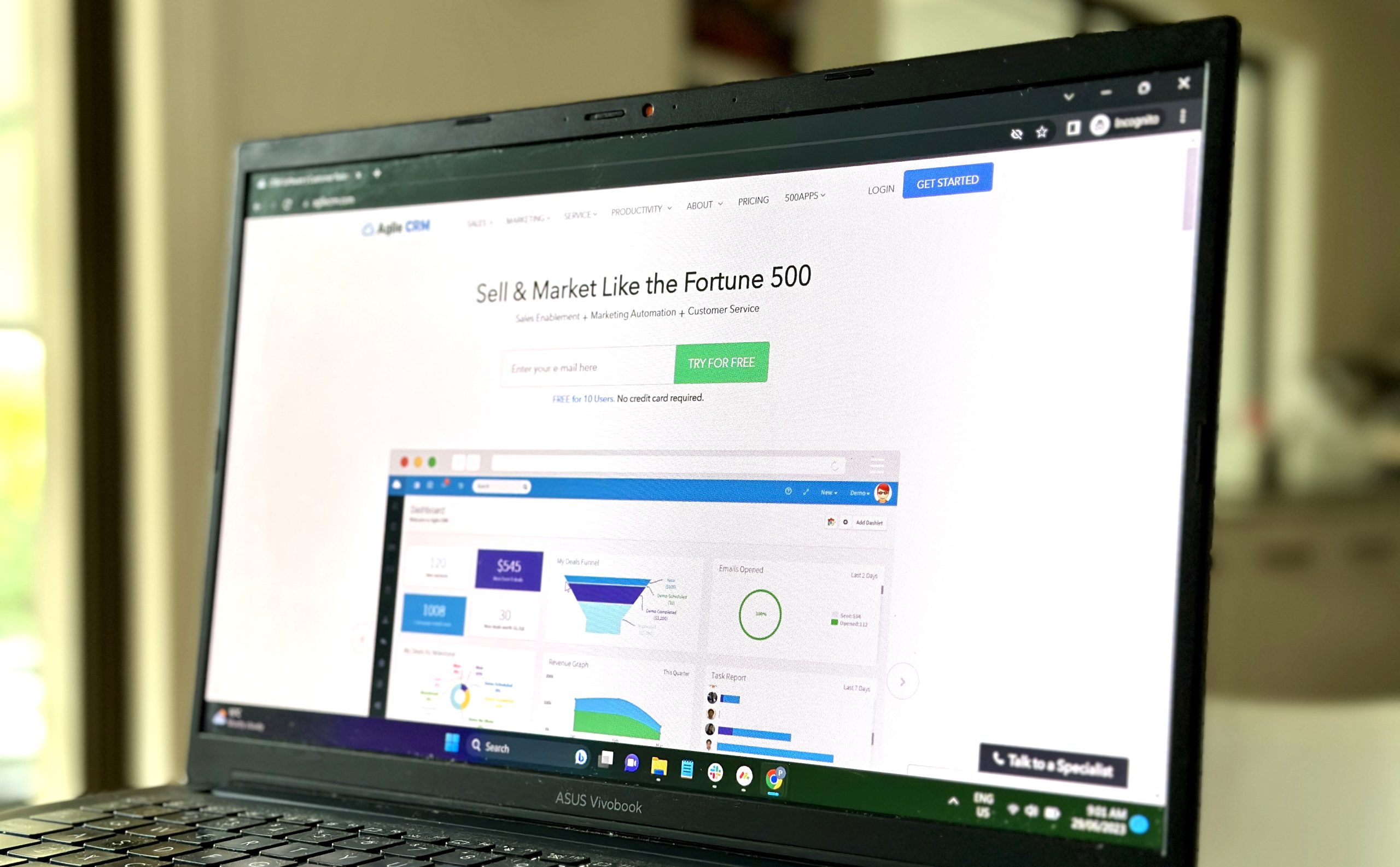
What to Consider When Choosing a CRM
The best CRM for small business in Australia is largely dependent on your organisation and its individual needs.
How can a CRM best support your sales, marketing, and customer service processes, tasks, campaigns, and other outputs?
Additionally, there are several other factors to consider, including:
Integration: Will the CRM integrate with existing software and systems within your organisation?
Customisation and flexibility: How well can it be tailored to your needs?
User-friendliness: How intuitive is it? Will its integration create employee resistance?
Data delivery: Does it allow for simple importation and exportation of data?
Reporting and analytics: Is its level of insight comprehensive enough?
Security and data privacy: Does it offer capable security measures?
Mobile accessibility: Is it usable on the go?
Customer support: What is the level of assistance offered?
Cost and ROI: Is it worth implementing?
Scalability: Is it capable of accommodating and supporting your business if it expands?
We go into more detail here.
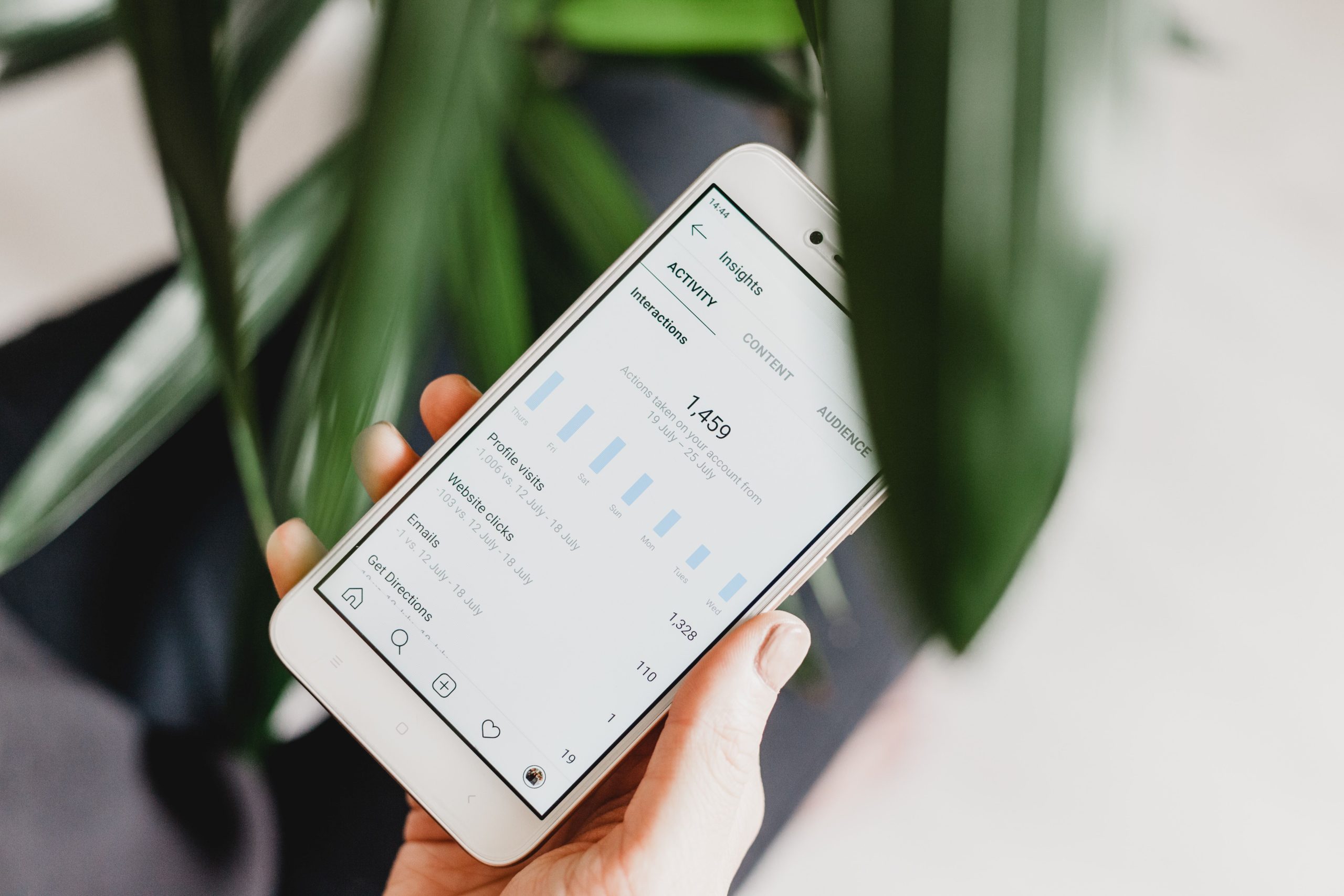
Need CRM Assistance?
At Hunt & Hawk, we know all about the best CRMs for small business in Australia and plenty more.
We’re experts in sales, marketing, and branding and have been helping organisations grow for years.
If you need to chat about CRMs or CMSs; ROI or SEO, or any other acronyms – or just plain words – we’re here for you.
Reach out to us at dare@huntandhawk.com or book a time to chat.